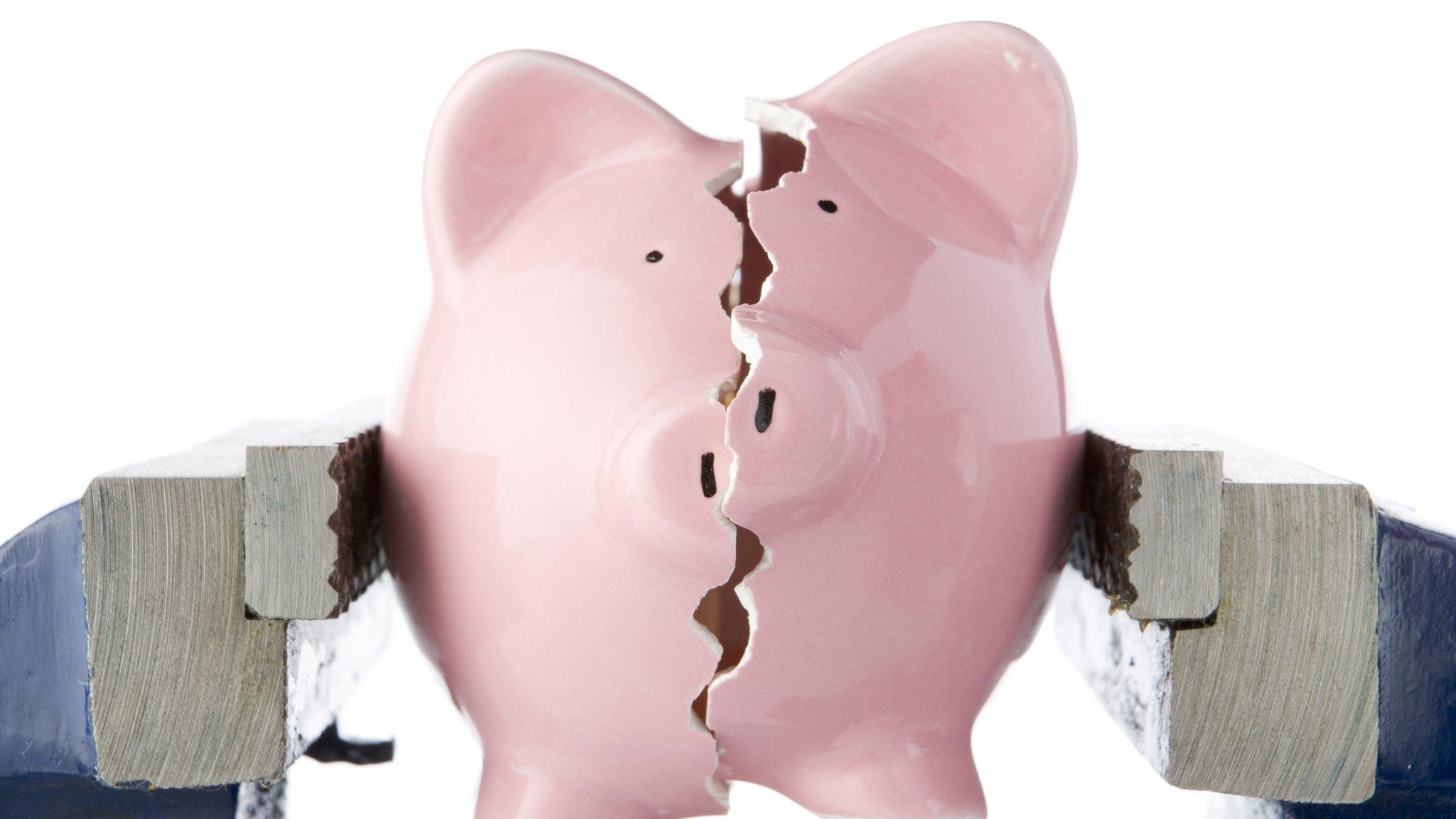RBS biggest failure in Bank of England stress test
- Published
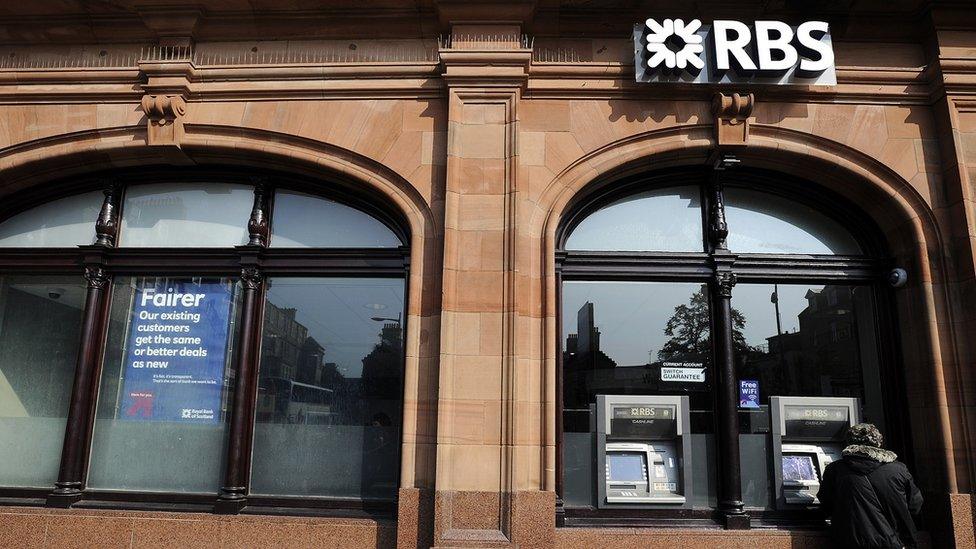
RBS is the worst prepared of the UK's biggest lenders to cope with another financial crisis, Bank of England (BoE) stress tests have found.
The results forced RBS to devise plans to bolster its balance sheet by £2bn through cost cuts and shedding assets.
Under the "very severe" tests, banks had to be able to handle a house price crash in the UK and a global recession.
The BoE found Barclays and Standard Chartered also missed key hurdles but had already taken steps to cope.
RBS, which is still 73% owned by the government after its bailout during the 2008 financial crisis, said it had "agreed a revised capital plan... to improve its stress resilience".
It said the change came "in light of the various challenges and uncertainties facing both the bank and the wider economy highlighted by the concurrent stress testing process".
'Action taken'
RBS submitted the new plan to the Bank after running its own internal tests and finding its balance sheet would fall short.
The bank said the test applied a hypothetical adverse scenario to the group's balance sheet as at 31 December 2015, and that it had taken a number of actions since then, including the ongoing run down of "risk-weighted assets".
And it said it had continued its reduction in "higher-risk credit portfolios", and reached settlements with regard to various litigation cases and regulatory investigations.

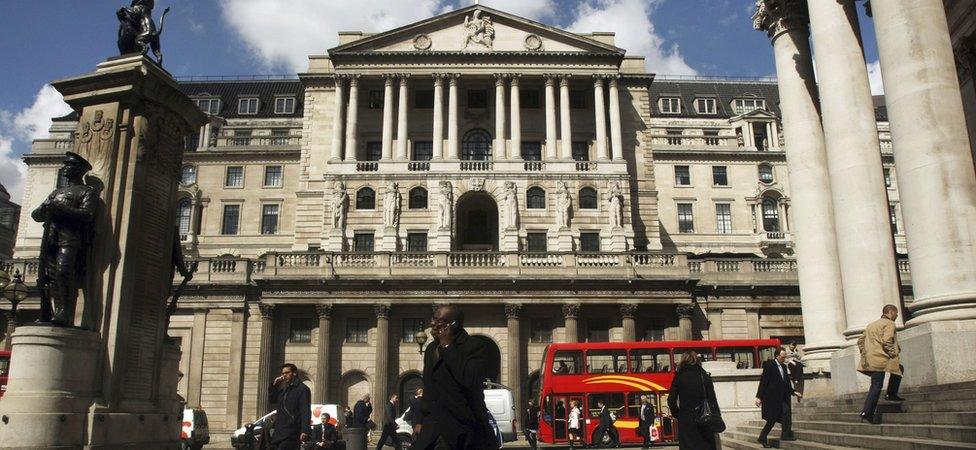
Analysis: Simon Jack, BBC business editor
Eight years on from the financial crisis and taxpayer-owned RBS is still short of the money it needs to survive another one. It came bottom of the class in the Bank of England's tests of financial strength and has been forced to beef up its finances.
Barclays and Asian-focused Standard Chartered also performed poorly in the test, but the Bank said it was happy with their exiting plans to raise additional capital.
These were the two weakest links in a system that overall has strengthened. And just as well. The Bank's Financial Stability Report has plenty of reasons for concern.
The UK's reliance on foreign money to finance its trade deficit - the so-called "kindness of strangers" - is highlighted, along with the vulnerability of the UK's role in providing financial services to the European Union.
Add to that the rapid increase in debt in China and the world looks like a dangerous place - not for the first time. RBS has been found vulnerable.

The Bank said Barclays fell short of one hurdle, but it added that the bank's existing plans to safeguard its balance sheet were enough.
Standard Chartered missed a key metric as well, although it was not asked to take any action.
The Bank's Financial Policy Committee said in light of the findings and action taken by RBS, "the banking system is in aggregate capitalised to support the real economy in a severe, broad and synchronised stress scenario".
And Bank of England governor Mark Carney, referring to the above trio of banks, said: "There were three of the institutions who could see the direction of travel and took actions of their own accord."
Mr Carney added the tests showed the banks would still be able to lend to households and businesses, despite the "very severe shock".
Risk factors
The annual stress test gauges the financial strength and resilience of the UK's seven major lenders - Lloyds Banking Group, HSBC, Barclays, Royal Bank of Scotland (RBS), Santander, Standard Chartered and Nationwide Building Society.
They were tested against a doomsday scenario which would see economic growth plunge to levels seen during the financial crisis of 2008.

Stress test scenario
UK house prices fall by 31%
UK GDP falls by 4.3%
UK unemployment rises to 9.5%
Global GDP falls to -2%
China enters recession with -0.5% growth
US and eurozone GDP fall by 3%
Oil drops to $20 a barrel

Under the five-year scenario, UK house prices would dive 31% and unemployment rise to 9.5%, while China would suffer a recession and oil prices plunge to $20 a barrel.
This is the third year of stress tests for UK banks.
The 2014 stress test focused on risks to the UK household sector, while the 2015 ones focused more on global risks, particularly with a sharp contraction in growth in China.
This year's tests incorporate a more severe global stress than either 2014 or 2015, and a domestic stress which is broadly as severe as the 2014 exercise.
The Bank says it "reflects the desire of policymakers to use the stress-test framework to help set capital requirements and buffers for all stress-test participants each year".
Shares in Royal Bank of Scotland fell more than 4% before paring the losses. Barclays and Standard Chartered shares also saw modest falls.
- Published30 November 2016
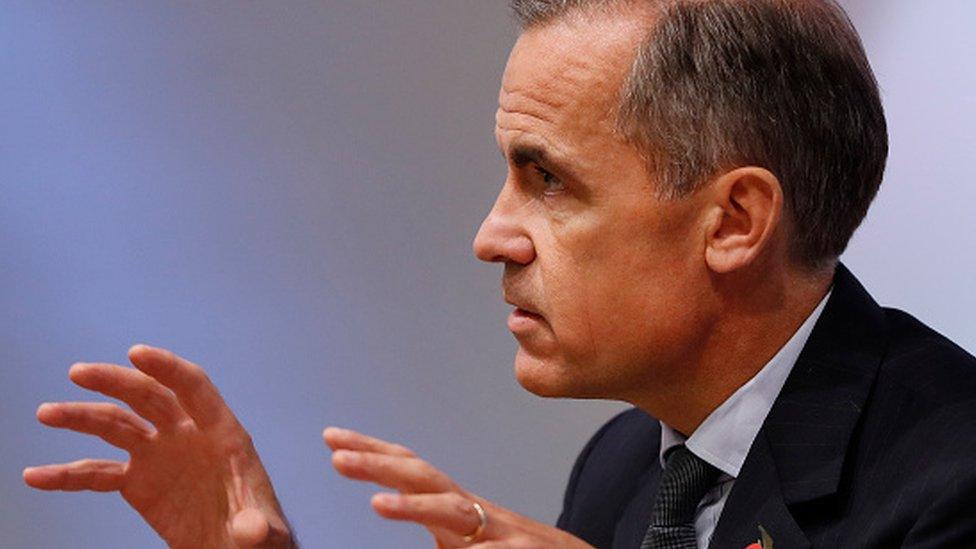
- Published16 November 2016
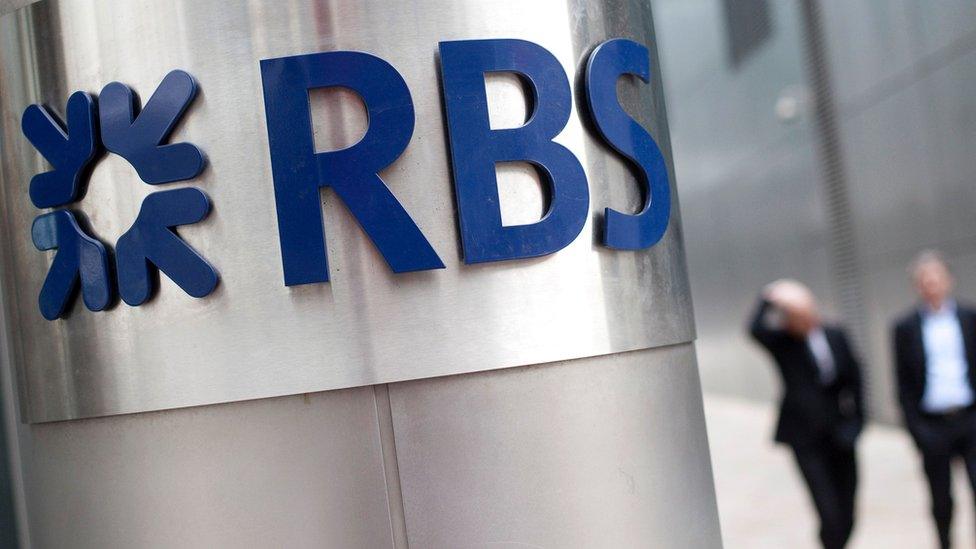
- Published23 November 2016
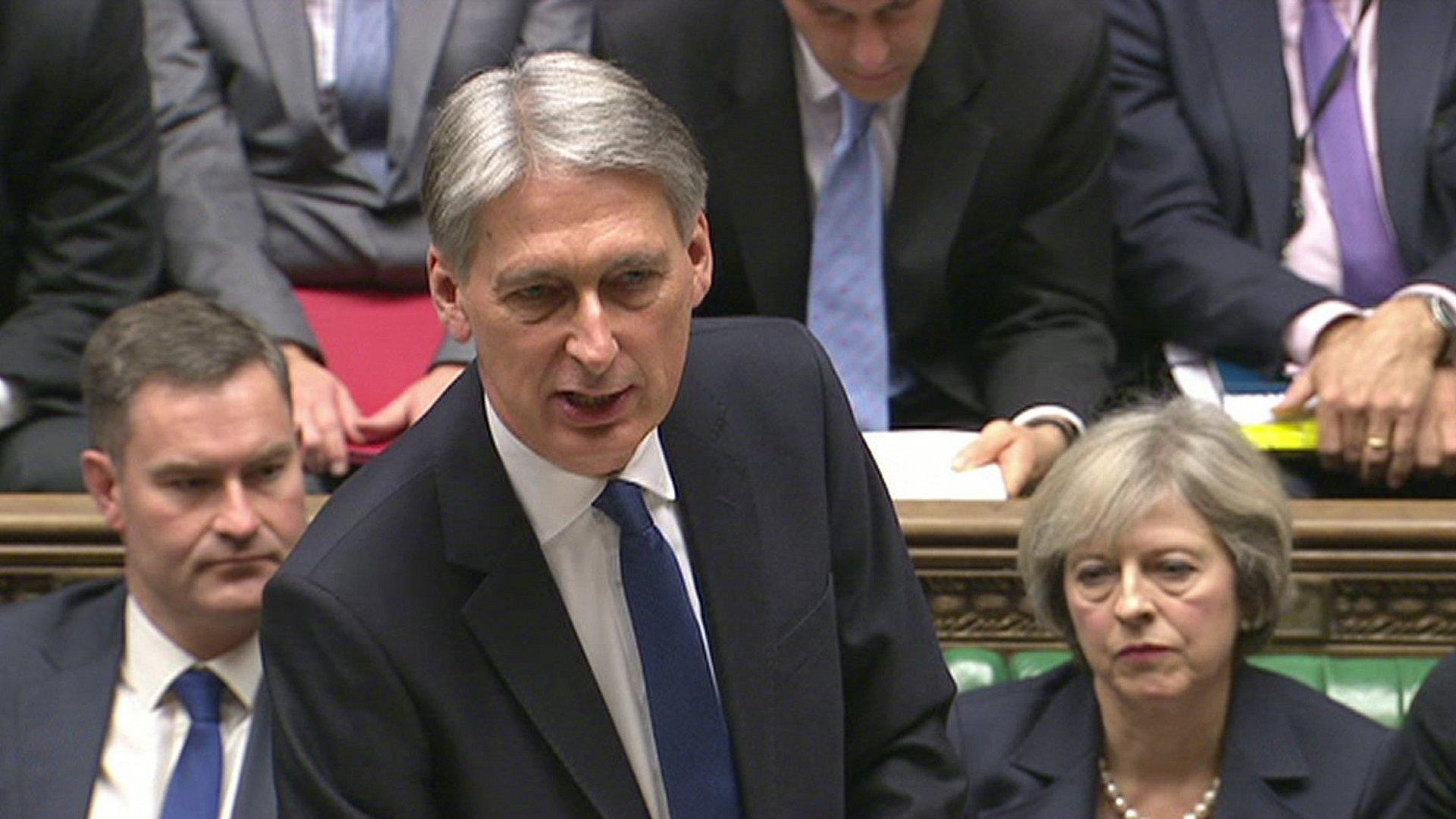
- Published29 July 2016
